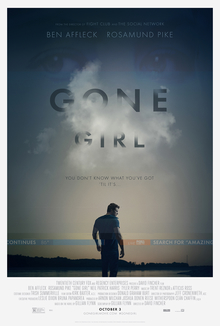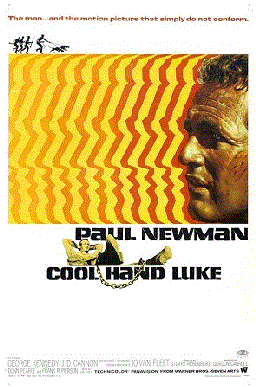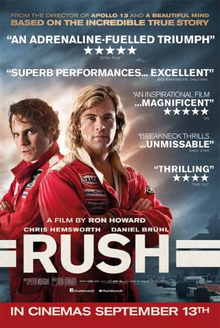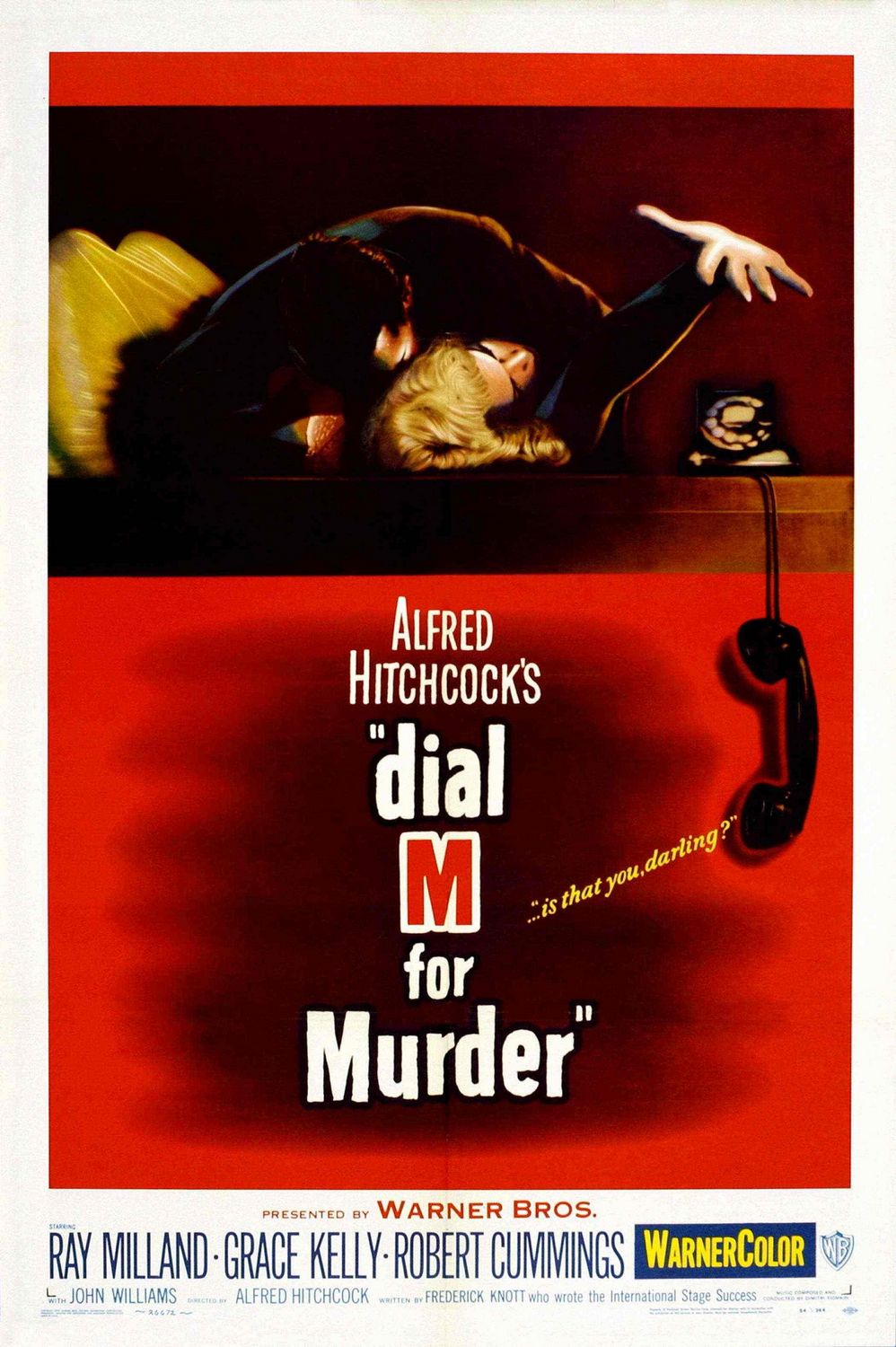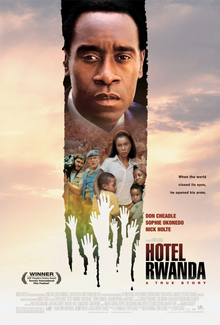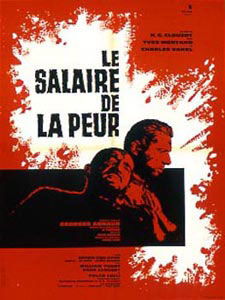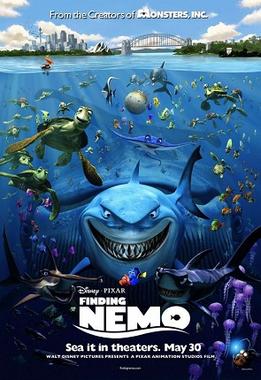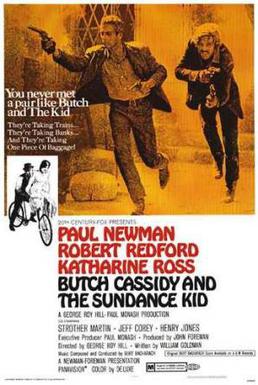Here we are again. Another fifty movies, another torrent of uninformed opinion. Which puts me among the vast majority of moviegoers who've never taken a film class in their lives. It's all hooey anyway. What what you like, maybe try new things to see if you like 'em.
I'm here to help.
Once again, the best and the worst, based on purely objective subjectivity.
THE CREAM
Amores Perros
Two years of Spanish classes, and I couldn't hope to remember the name Alejandro González Iñárritu. Now it's branded into my brain. Because this movie jolted me out of a stupor.
Back when I considered abandoning this project (not for the first time),
this movie slugged me in the jaw. Its manic pace, shocking violence, deep-cutting drama, and overlapping non-linear stories, showed me what movies could be, and should be. Hence, I'm still watching, and you're still reading.
Fargo
Joel and Ethan Coen. There's another pair of names that pops up a lot. For good reason. Their patented mixture of quirky humor, brutal violence, and genuine humanity in dark worlds somehow amazes me every time they pull it off. Once I get past the bizarre personal touches. Like the weird meandering conversations in regional dialogue, every verbal tic and obscenity and filler word carefully calculated for maximum effect.
Kill Bill: Vol. 1
Speaking of weird meandering conversations: Quentin Tarantino. Maybe you've heard of the guy. Kind of a big deal in film circles, apparently. How would I know. Something about the way he makes movies that reference other movies, and his own work, and entirety of popular culture. But I submit that he is
not an auteur, for three reasons which I just made up.
* They're absurd, they're convoluted, but his movies
make sense.
* There's no deep meaning behind the stylish violence, far as I can tell.
* This one's just fun to watch and watch again.
Life of Brian
Fun to watch and watch again? Did somebody say Monty Python? I did.
This tragically overlooked spoof (in America) depicts human absurdity better than anything else they've ever done. Like discovering razors in your toffee, there's a sharp message amid the silliness: you're going to die, so might as well enjoy your life. Even you accidentally become the epicenter of a fanatical religious cult. Cheerio, we're British.
Mary and Max
I defer to the reigning champion of black comedy. This peculiar claymation contains more harsh life lessons per minute (learned the hard way), more tragicomedy, more sympathetic portrayals of human weakness, more gross-out moments, than my entire elementary school career. (You should've been there.) If I could recommend one movie out of one hundred, this is it.
THE DREGS
Annie Hall
I want to like Woody Allen. He's intelligent, innovative, sincere about his insecurities, and ferociously eloquent. But why does it have to be Freudian musings on the sex lives of nebbish Jewish comedians. While I admit sympathy for this doomed fictional romance, I also file a fictional restraining order, to prevent them from ever engaging my idle imagination (in public) ever again.
Butch Cassidy and the Sundance Kid
A classic turn-of-the-twentieth-century Western? Sure, if you're a sucker for lovely scenery. As a story, I found it dull and bloated, though intermittently amusing. Like an overweight redneck-in-denial who prattles endlessly about lofty vehicle overhauls he'll never follow through with. By the time our titular heroic outlaws get around to shooting and getting shot at, it's too late. Like the Old West, my attention has moved on.
Cool Hand Luke
Imagine the tough, taciturn, individualistic hero of a Western, only plopped into a twentieth-century chain gang. Now imagine the trouble he'd instigate when he runs out of fucks to give. That's this guy. Some folks might enjoy his petty hijinks; I wasn't feeling it. It hurt to watch the guy beat his head against the system, then get beat down for it. Over, over, and over.
If you're looking for a positive opinion or a meaningful interpretation or a hackneyed Christ figure parallel, look elsewhere. Maybe a marginally qualified reviewer. There's hundreds. Search engine's just a click away. Browse, until you find someone who agrees with you.
Persona
We meet again, Ingmar Bergman.
This glacier-paced surrealist piece delves into the psyches and psychoses of two irrevocably flawed someone. They talk. And it was an agonizing experience I am not keen to repeat. For the curious: you have been warned. For the furious: you're allowed to like it and not be threatened by my dissenting opinion.
The 400 Blows
Swedish, Italian, Yugoslavian, French? Maybe I
do harbor a subconscious vendetta against Europe. But you've heard my objections to this one in other contexts. The characters are indiscriminately despicable. The plot progresses at the speed of I don't give a fuck. And the seemingly triumphant resolution left me befuddled.
What moral is the director attempting to subversively communicate? If you're smart, you can be a brat and get away with it? Don't do all these cool things I did as a kid? Questions pile up like a dung heap in a Parisian alley. And I'm none too keen to reach in and feel around for answers.
